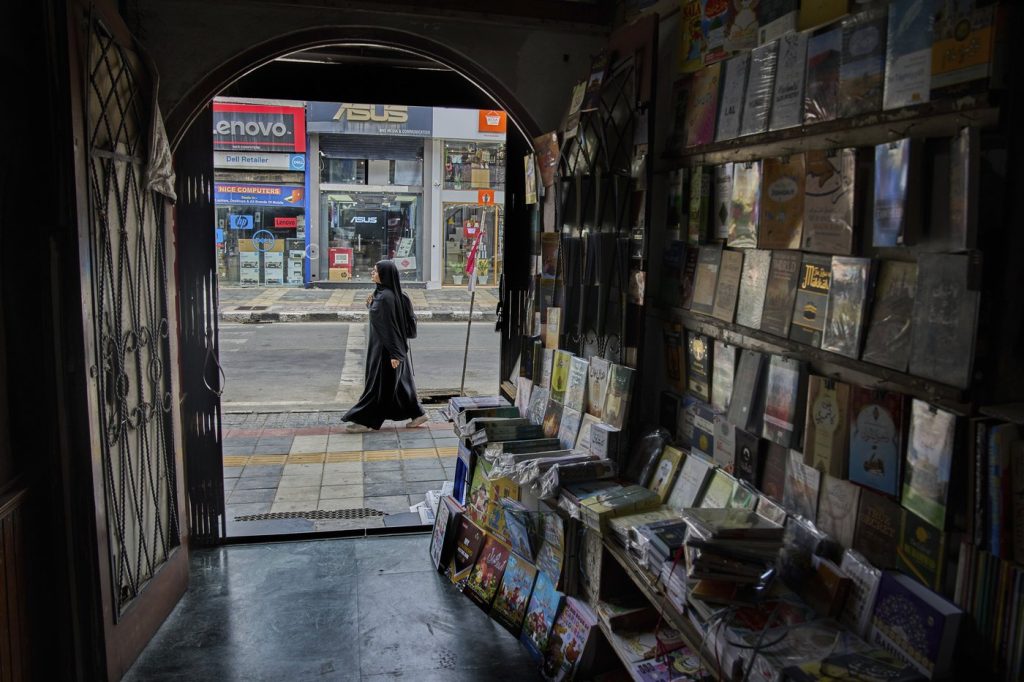Srinagar, India (AP) – Indian authorities have enacted a ban on 25 books in the Kashmir region, claiming that the works promote "false narratives" and "secessionism.” This move is part of a larger trend of escalating controls over the press in the area, which is already facing significant restrictions.
The ban, which could impose prison sentences on individuals for selling or possessing these books, specifically targets works by prominent authors, including Booker Prize-winning novelist and activist Arundhati Roy, constitutional expert A.G. Noorani, and notable historians such as Sumantra Bose, Christopher Snedden, and Victoria Schofield. The implications of this ban have raised alarms about freedom of expression and academic discourse in Kashmir.
The order was issued on a Tuesday by the Home Department of the region, which operates under the direct control of Lt. Gov. Manoj Sinha, a key figure representing the New Delhi government in Kashmir. Sinha enjoys extensive powers, especially since Kashmir's local governance has largely been rendered ineffective following the abrogation of its special status in 2019. This political backdrop sets the stage for the Home Department's assertion that the banned books are "forfeit" under the 2023 criminal code, effectively restricting their circulation and possession within the Himalayan territory.
According to the Home Department’s notice, the banned books are alleged to "excite secessionism" and threaten India's sovereignty and integrity. The notice further claims that these texts misinform the youth, glorify terrorism, and incite violence against the Indian State. This decision was reportedly based on "investigations and credible intelligence" about the distribution of what the authorities characterize as secessionist literature concealed as historical or political commentary.
The contentious background of Kashmir, administered by both India and Pakistan while claimed by both, further complicates this issue. Since 1989, militants in the Indian-administered portion of Kashmir have been fighting against New Delhi's control, with many local Muslims supporting the rebels' goals. These conflicts have led to the deaths of tens of thousands, including civilians, rebels, and government forces. The Indian government maintains that this militancy is fueled by terrorism sponsored by Pakistan, a claim that Pakistan denies, and many Kashmiris consider as a legitimate struggle for freedom.
Following the revocation of Kashmir's special status, authorities in the region have stepped up efforts to suppress dissent, increasingly criminalizing narratives that question India's sovereignty. Earlier this year, police conducted raids on bookstores to seize hundreds of books associated with a significant Islamic organization in the region. In 2011, there were instances of police filing charges against education officials for using materials deemed problematic, and a college lecturer was arrested over exam content critical of government actions. Although some accused were released after questioning, many cases remain stalled in India's sluggish judicial system.
Mirwaiz Umar Farooq, a notable resistance leader in Kashmir, criticized the ban of these scholarly works. He argued that outlawing books authored by respected historians will not erase the historical truths and lived experiences of Kashmiris. Farooq pointed out the contradiction in the authorities organizing a book festival to showcase their supposed dedication to literature while simultaneously banning certain works.
While banning books is uncommon in India historically, there has been a rising trend since Prime Minister Narendra Modi took office, with increased raids on independent media outlets and the jailing of journalists. Efforts to alter historical narratives in education have similarly surged, particularly concerning the portrayal of Muslim Mughal rulers. Last year, a court lifted a long-standing ban on Salman Rushdie's "The Satanic Verses," highlighting inconsistencies in past censorship practices.











